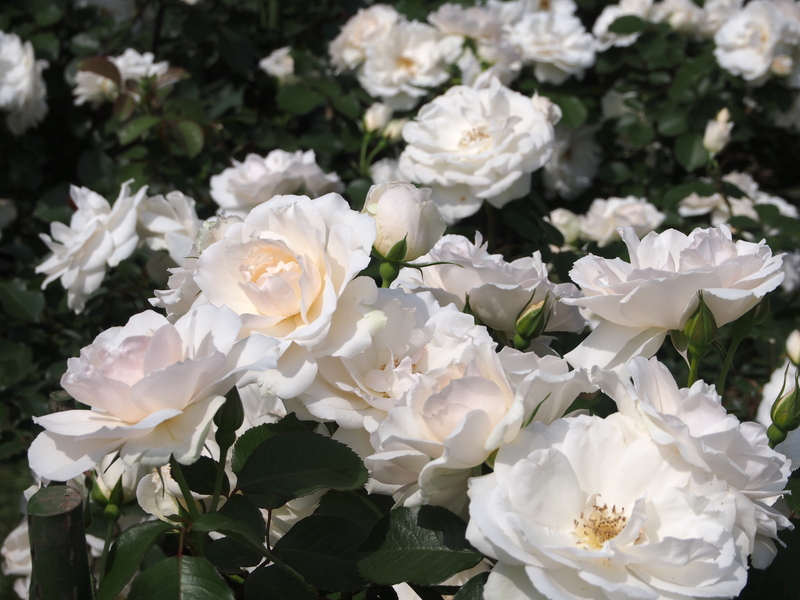Cost-Effective, Hassle-Free Gardening Ideas
Posted on 15/05/2025
Cost-Effective, Hassle-Free Gardening Ideas
Cost-Effective, Hassle-Free Gardening Ideas
Introduction
Gardening is a delightful hobby that brings tranquility, joy, and of course, vibrant blossoms or bountiful vegetables. However, it's often perceived as expensive and time-consuming. But the truth is, you can maintain a beautiful garden without breaking the bank or dedicating an overwhelming amount of time. Below are some cost-effective and hassle-free gardening ideas to get you started.

Choose the Right Plants
One of the simplest ways to economize in gardening is to select the right plants. Opt for native plants as they require less water and maintenance. Research the local climate and soil type to ensure your garden flourishes naturally.
DIY Composting
Instead of spending money on store-bought fertilizers, consider DIY composting. Use kitchen scraps, yard waste, and other organic materials to create rich compost that will nourish your plants. Not only is this cost-effective, but it's also environmentally friendly.
Mulch to Conserve Water
Mulching is another thrifty technique to reduce water usage and weed growth. Organic mulches like straw, leaves, or bark chips help retain moisture and enrich the soil as they decompose. This means less watering and healthier plants with minimal fuss.
Container Gardening
If you're short on space or resources, container gardening is a fantastic option. Reuse old containers, pots, or even buckets to grow your plants. Container gardens are not only economical but also easy to manage and rearrange.
Rainwater Harvesting
Save on water bills by collecting rainwater. Use barrels to capture and store rainwater, which you can then use to irrigate your garden. Not only does this reduce costs, but it also ensures your garden gets chemical-free water.
Companion Planting
This ancient practice involves growing certain plants together that benefit each other by enhancing growth and reducing pests. For example, planting marigolds with tomatoes can deter nematodes, while growing beans alongside corn provides natural pest control.
Low-Maintenance Perennials
Invest in perennials that return year after year with minimal effort. Unlike annuals, which need to be replanted each season, perennials save you time and money in the long run. Some popular low-maintenance perennials include lavender, daylilies, and hostas.
Use Natural Pest Control
Avoid costly and toxic pesticides by using natural alternatives. Attract beneficial insects such as ladybugs and predatory wasps, which will keep harmful pests in check. Homemade insecticidal soap and neem oil are effective, eco-friendly options.
Seed Saving
Save money on seeds by harvesting them from your current plants. Dry and store seeds from fruits, vegetables, or flowers for next season's planting. This way, you not only reduce costs but also ensure a continuous supply of plants adapted to your garden.
Tips for Cost-Effective, Hassle-Free Gardening
- Start small and gradually expand as you gain experience.
- Prioritize quality over quantity to avoid frequent replacements.
- Use recycled materials, such as old furniture or pallets, for garden projects.
- Regularly inspect plants for diseases to nip issues in the bud.
- Join a local gardening club or online forum for free advice and seed swaps.
Pros and Cons
Pros:
- Cost savings through DIY and resourceful techniques.
- Reduced water and maintenance requirements.
- Environmentally friendly practices.
- Enhanced aesthetics and relaxation.
Cons:
- Initial time investment for setting up.
- Learning curve for beginners.
- Requires consistent monitoring and adjustments.

Takeaways
- Choose plants suited to your local climate to reduce maintenance.
- Implementing mulching, rainwater harvesting, and companion planting can significantly cut costs.
- DIY projects like composting and container gardening offer both financial and environmental benefits.
- Natural pest control methods and seed saving can further enhance cost-effectiveness.
Conclusion
Gardening doesn't have to be an expensive or time-consuming endeavor. With a thoughtful approach and some creativity, you can enjoy a lush, thriving garden without the hassle. From selecting the right plants to employing sustainable practices like composting and rainwater harvesting, these cost-effective ideas will help you cultivate a beautiful and productive garden. Remember, the key is to start small, stay resourceful, and continually learn from both success and failure. Happy gardening!
Latest Posts
Creating a Serene Zen Garden Oasis
Perfect Mow Timing: How Often to Trim Your Lawn?



